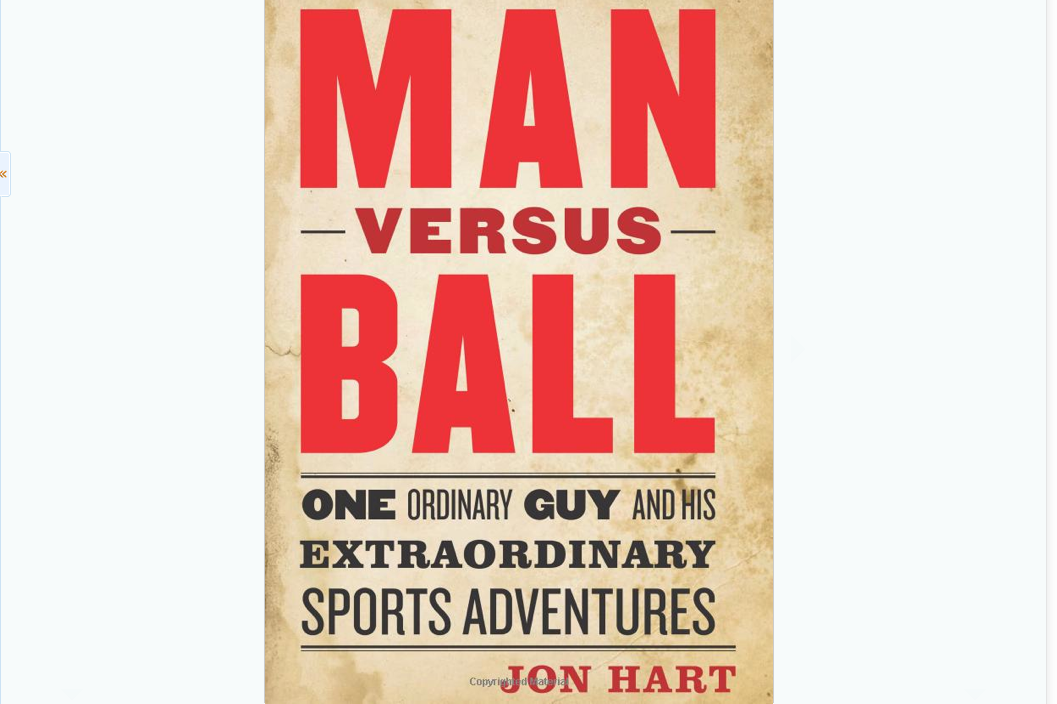By the Book: Two Breezy Fall Reads, 'Recipe for a Happy Life,' 'Man Versus Ball'

Although only women will read Brenda Janowitz’s new novel, Recipe for a Happy Life (St. Martin’s), it makes a good early fall read.
It’s entertaining, informative about the trust-fund set in the Hamptons (drink sparkling rosé, don’t expect cold cut platters or heroes at parties), and, despite its obvious sentimentality and predictable resolution, affecting. It’s also refreshingly clear of chic-lit jargon, pro-forma sweaty sex scenes and f- and s- words. And who can fault the theme? Love your mother, love your grandmother, take life day-by-day. Sappy? Escapist? So what. It’s to the author’s credit that she writes well and crafts a realistic plot that turns on estrangement between parents and children, pancreatic cancer, spurned love and unwed motherhood. Of course, it helps to have lots of money.
Hannah Goodman, a widow at 34, has just lost her lawyering job on Wall Street and her boyfriend, a rocker, whose mother has accused her of trying to murder him (don’t ask). Aimless, Hannah flees to spend the summer with her beloved grandmother in Southampton, a widow many times over, charming and wealthy beyond belief: “My grandmother’s seventh husband, the one with the title, is the one she remembers most fondly. We call him ‘the one with the title’ because he was the Mattress King of Canarsie.” Grandma is compassionate, loving, while Pulitzer Prize-winning journalist mom, Gray Goodman (born Grace but she didn’t like the name), is rarely around, and when she is, mother and daughter don’t get along. Hannah always wanted a “normal, conventional” life, but Gray kept pushing “extraordinary.” Grandma gives hugs and solace, much of it by way of expensive clothes and lunches (at places where “diet cokes cost $12”), and legendary beach parties. Did you know that “Southamptonites never set foot in Westhampton or Quogue; they only ever drive west to get back to Manhattan?”
Although the central relationships in the book involve three generations of women, minor characters contribute to the theme of extending tea (or wine) and sympathy. They include lonely, precocious 14-year-old Hunter, whose mother died and who develops a crush on Hannah, and Nate Sugarman, handsome, flush, successful and seemingly arrogant, but as Hannah reluctantly comes to learn, a great guy, despite money and connections. It’s all a bit much and much too class-oriented, but good clean fun, full of true romance and family love.
And now something for men, as the fall athletic season kicks in—Man versus Ball (Potomac Books) by Jon Hart subtitled “One Ordinary Guy And His Sports Adventures.” Like Recipe, it doesn’t seem to be a book that would cross gender lines but this one should, since so many women are involved in sports and because the narrator of this memoir is so charming, quirky and informative about the George Plimpton in us, the fantasy that amateurs with persistence, zeal and a restorative sense of humor can be players in the game—whatever the game, and for Jon Hart, that means not just amateur or semi-pro football but basketball and soccer on in-line skates, wrestling (ah, “the art of falling”), hockey, caddying and racing up 1.576 stairs to the 86th floor of The Empire State Building (he did it in 20:51—the record is 9:33). And not just participation in sports. The chapters on training to be a vendor, mascot and ball boy (at the U.S. Open) are hilarious. (He nabbed the record for selling the most pretzels in a single game at Citi Field.) In fact, when Hart gets accepted (somewhat) by a semi-pro football team, he’s tagged with the moniker, “Plimpton.” What distinguishes this memoir of quixotic sports pursuits is Hart’s understated prose, full of irony and self-deprecating perspective. On his website he writes that he “graduated first in his class from mascot school,” but then again, he was “the only person in [his] graduating class.” What also motivates him, as it did Plimpton, is writing up his eccentric experiences. A freelance pro, he finally gets a commitment from a magazine, but he was “always chasing “adventures and bylines.”
As to the title, Man wins because humanity wins, even as Hart provides a shrewd, critical and amusingly tolerant insider look at various games, competitions, players and related minor characters that will probably affect the way we look at various sports in person or on television. As he says early on, he was always a sports lover but never a stats guy. “I enjoyed the wonderful personalities.” But along his participatory way he learned that not everyone has talent, though “anyone can persist.” And now? He bikes and limits his consuming passion to writing. He stays on the sidelines. And yet, and yet, “I hear men’s roller derby is making a big comeback.”



